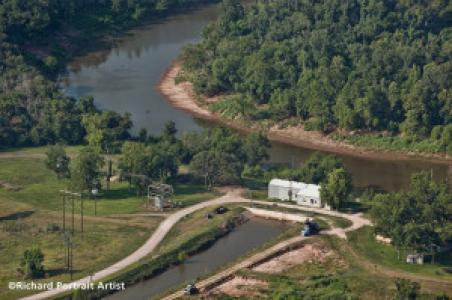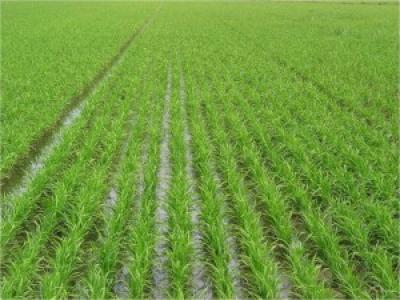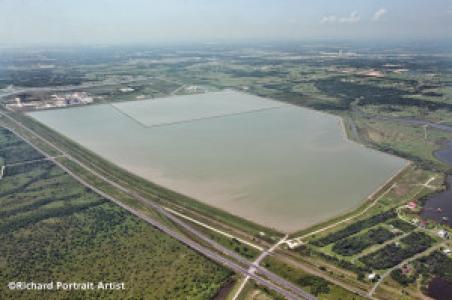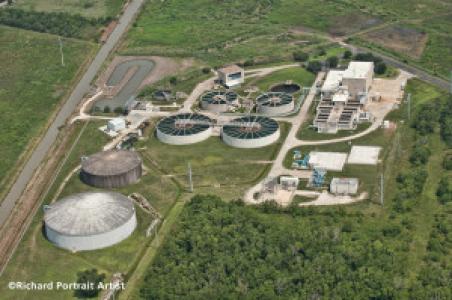The History of GCWA
Gulf Coast Water Authority (GCWA) provides water for industry, agriculture, and municipalities in Brazoria, Fort Bend, and Galveston County. This includes more than 185,000 customers in Galveston County alone.
You can trace the beginnings of the Gulf Coast Water Authority (GCWA) back to 1908 with the creation of the Cane and Rice Belt Irrigation Company and construction of a pump station on the Brazos River. In the early 1930s, additional pump stations and relift stations on the system were added as well as extensions to the canal system, eventually running through Brazoria County and reaching into Galveston County. In 1940, the Briscoe Irrigation System consisting of an additional pump station on the Brazos and more canals were established. These two original systems were purchased by the Brazos River Authority in 1966 and 1967. In 1988, GCWA bought the Canal Division from the Brazos River Authority. This allowed the GCWA to provide water supply for industry, irrigation, and municipal use in what ultimately became the three-county area of Brazoria, southern Fort Bend, and Galveston. In 2006, GCWA purchased the Chocolate Bayou Water Company, aka Juliff Canal System, which included another pump station on the Brazos River as well as pump stations on three bayous in Brazoria County: Chocolate, Mustang and Halls.

Canal Division
The GCWA Canal Division operates out of its office located in Alvin. The division owns and operates the American, Briscoe, and Juliff Canal systems. This includes approximately 400 miles of main-line canals and laterals, and about 400,000 ac-ft of water rights. Approximately 18,000 acres of commercial and hybrid seed rice are irrigated annually in Brazoria and Galveston Counties as well as a Rice Research Facility located outside of Alvin, Texas, providing world-wide technology for the rice industry. Industrial customers served by the Canal Division include INEOS Olefins and Polymers, and Ascend Performance Materials. Municipal customers served include the cities of Sugar Land, Pearland and Missouri City, as well as Ft. Bend WCID #2 and Pecan Grove M.U.D.

Industrial Division
Through acquisitions and exchanges, the Industrial Division located in Texas City was acquired by GCWA in 1971. The Industrial Division operates a 900 acre off-channel reservoir, a canal system, and a pump station delivering an average of 60 million gallons of surface water per day to Texas City industries. These industries served include DOW/Union Carbide Corp., Marathon Galveston Bay Refinery, Marathon Petroleum, LLC, Valero Refining Texas LLP, Eastman Chemical Company, and Ashland Specialty Ingredients.

Water Treatment
GCWA owns and operates the Thomas S. Mackey Water Treatment Plant located in Texas City. The 50 million gallon per day (MGD) conventional surface water plant serves 13 water utilities in Galveston County. The plant was originally constructed by the City of Texas City in 1978 and acquired by the GCWA in 1983. Those customers include the cities of Texas City, La Marque, Galveston, Hitchcock, League City, GCWCID #1, GCWCID #8, GCWCID #12, GCFWD #6, GCMUD 12, Bacliff MUD, Bayview MUD and San Leon MUD.
GCWA’s Administrative Office is located in Texas City where all financial, human resources, purchasing, and land administration are provided. The GCWA Board of Directors meet at the Administrative Office on the third Thursday of each month.

Water Source: The Brazos River
GCWA has only one source of water for its customers: the Brazos River. Our ability to take water out of the Brazos is driven by both the TCEQ (Texas Commission on Environmental Quality) Brazos Watermaster and the BRA (Brazos River Authority). We have perpetual water rights issued by the TCEQ, however as we learned in the recent drought, even senior water rights will not meet customer demands in low river flows, and thus why we have stored water contracts with the BRA. The BRA operates 11 storage reservoirs along the Brazos River. During times of low river flows, we are able to release our BRA stored water. To make sure that senior rights holders get their water, TCEQ appointed a Watermaster for the Brazos in 2015, thus helping us to ensure a more reliable source of water during drought periods.


